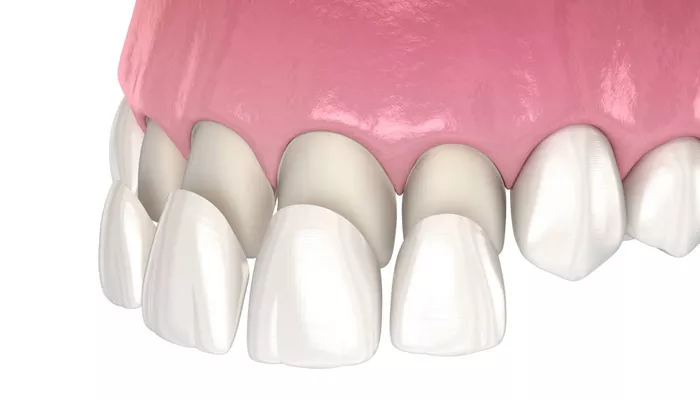Teeth whitening is a popular cosmetic dental procedure. Many people desire a brighter smile. However, not everyone is a good candidate for teeth whitening. Certain factors can affect the safety and effectiveness of the treatment. This article will discuss who should avoid teeth whitening, the reasons behind these recommendations, and alternative options for achieving a whiter smile.
Understanding Teeth Whitening
What Is Teeth Whitening?
Teeth whitening is a cosmetic procedure that lightens the color of teeth. It can be done in a dental office or at home using various products. Common methods include:
In-Office Whitening: This method uses powerful bleaching agents applied by a dental professional.
At-Home Kits: These kits often include whitening strips, gels, or trays that can be used at home.
Whitening Toothpaste: Some toothpaste contains mild abrasives or chemicals to help remove surface stains.
How Does It Work?
Most whitening products contain hydrogen peroxide or carbamide peroxide. These chemicals break down stains on the tooth surface, resulting in a whiter appearance. However, the effectiveness of whitening treatments can vary based on individual factors.
Who Should Avoid Teeth Whitening?
1. Individuals with Sensitive Teeth
People with sensitive teeth may experience discomfort during or after whitening treatments. Sensitivity can be caused by:
Enamel Erosion: Worn enamel can expose the dentin, leading to sensitivity.
Gum Recession: Exposed tooth roots can be more sensitive to whitening agents.
If you have a history of tooth sensitivity, consult your dentist before whitening. They may recommend desensitizing treatments or alternative options.
2. Pregnant or Nursing Women
Pregnant and nursing women should avoid teeth whitening. The safety of whitening agents during pregnancy is not well studied. Some experts recommend waiting until after childbirth and breastfeeding to pursue whitening treatments.
3. Children and Adolescents
Teeth whitening is generally not recommended for children and adolescents. Their teeth are still developing, and whitening agents may affect the enamel. Most dentists recommend waiting until the late teenage years or early adulthood for whitening treatments.
4. Individuals with Dental Issues
People with certain dental problems should avoid teeth whitening. These issues include:
Cavities: Whitening agents can irritate exposed nerves in decayed teeth.
Gum Disease: Inflammation or infection in the gums can worsen with whitening treatments.
Cracked or Chipped Teeth: Damaged teeth may be more susceptible to sensitivity and should be repaired before whitening.
If you have any dental issues, consult your dentist for a thorough evaluation before considering whitening.
5. Those with Allergies to Whitening Agents
Some individuals may be allergic to the ingredients in whitening products. Common allergens include hydrogen peroxide and carbamide peroxide. If you have a history of allergic reactions to dental products, inform your dentist. They can recommend alternative whitening options.
6. Individuals with Restorations
People with dental restorations, such as crowns, bridges, or veneers, should be cautious with whitening treatments. Whitening agents do not affect the color of these materials. As a result, the surrounding natural teeth may become whiter, leading to a mismatch in color. If you have restorations, discuss your options with your dentist.
7. Those with Uncontrolled Dental Conditions
Individuals with uncontrolled dental conditions, such as severe gum disease or untreated cavities, should avoid whitening. These conditions can complicate the whitening process and may lead to further dental issues. It is essential to address any underlying dental problems before considering cosmetic treatments.
8. People with Certain Medical Conditions
Certain medical conditions may make teeth whitening unsafe. These include:
Oral Cancer: Individuals undergoing treatment for oral cancer should avoid whitening.
Severe Asthma: Some whitening products may trigger asthma symptoms.
Recent Dental Surgery: Those who have recently had dental surgery should wait until they have fully healed before whitening.
Always consult your healthcare provider if you have any medical conditions that may affect your dental health.
Alternative Options for Whiter Teeth
If you are not a suitable candidate for traditional teeth whitening, there are alternative options to consider:
1. Professional Cleaning
Regular dental cleanings can help remove surface stains from teeth. A dental hygienist can polish your teeth, making them appear brighter without the use of whitening agents.
2. Whitening Toothpaste
Whitening toothpaste can help remove surface stains without the use of harsh chemicals. While they may not produce dramatic results, they can enhance the brightness of your smile over time.
3. Natural Remedies
Some natural remedies may help brighten teeth without the risks associated with whitening agents. These include:
Baking Soda: A mild abrasive that can help remove surface stains. Mix a small amount with water to form a paste and brush gently.
Hydrogen Peroxide: Diluted hydrogen peroxide can be used as a mouth rinse. Mix equal parts of hydrogen peroxide and water, swish for a minute, and rinse with water.
Oil Pulling: Swishing coconut oil in your mouth may help reduce bacteria and improve overall oral health.
4. Cosmetic Dentistry
If you are looking for a more permanent solution, consider cosmetic dentistry options. These may include:
Veneers: Thin shells of porcelain or composite resin that cover the front surface of teeth, providing a whiter appearance.
Bonding: A tooth-colored resin applied to teeth to improve their appearance.
Conclusion
Teeth whitening can enhance your smile, but it is not suitable for everyone. Individuals with sensitive teeth, pregnant or nursing women, children, and those with dental issues should approach whitening with caution. Always consult your dentist before starting any whitening treatment to ensure it is safe for you.
If you are not a suitable candidate for traditional whitening, consider alternative options like professional cleaning, whitening toothpaste, or cosmetic dentistry. Maintaining good oral hygiene and regular dental visits is essential for a healthy, bright smile. Your dentist can help you find the best solution for your individual needs and ensure your teeth remain healthy and beautiful.
Related topics:

